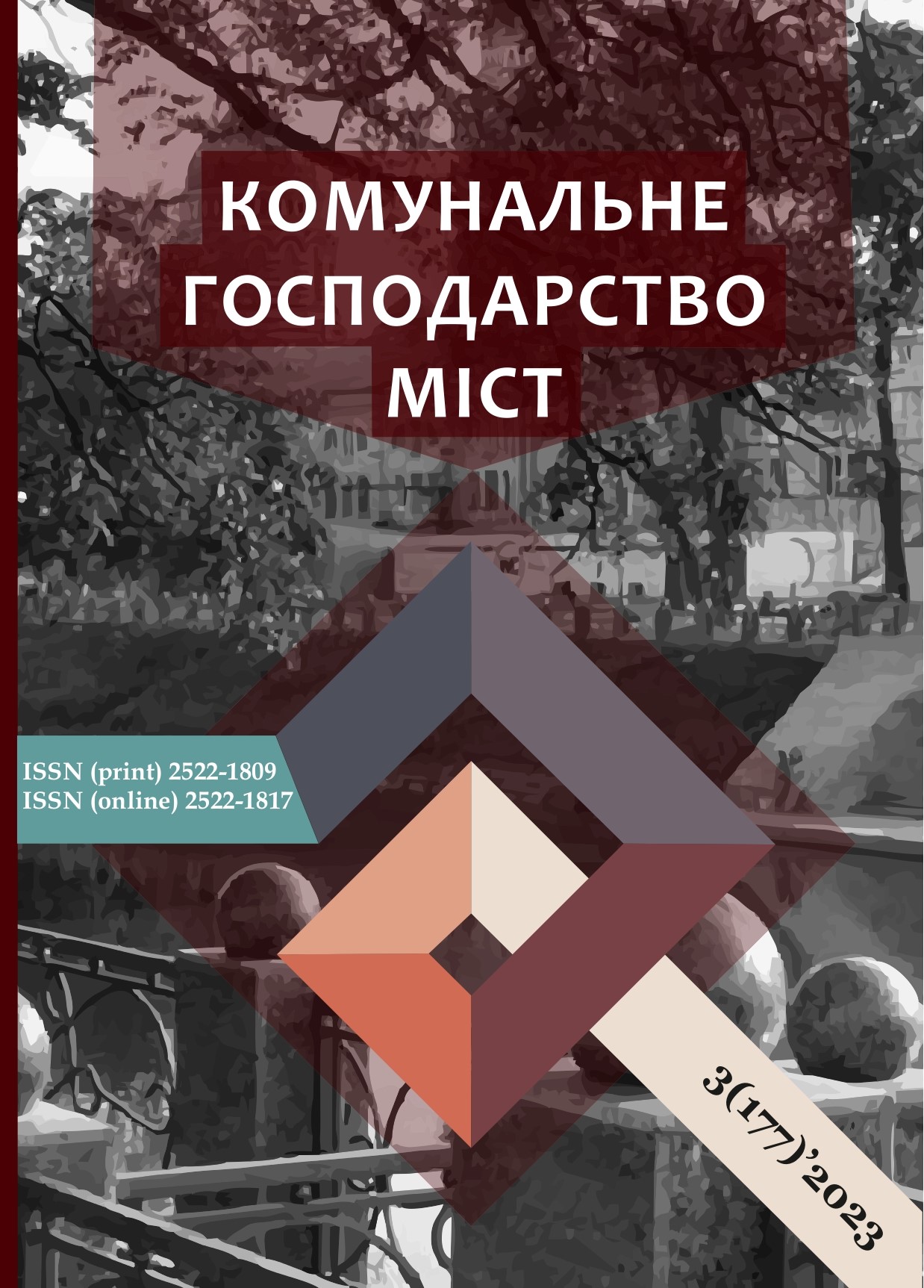DETERMINATION OF THE RELIABILITY OF THE GAS GENERATOR OF THE STORAGE SYSTEM AND HYDROGEN SUPPLY
DOI:
https://doi.org/10.33042/2522-1809-2023-3-177-142-146Keywords:
gas generator, reliability, frequency characteristicsAbstract
It is noted that as a generalized characteristic of the functional gas generator, which is sensitive to variations in its parameters, it is advisable to use the transfer function, or its analogue - the amplitude-phase frequency characteristic of the gas generator. The amplitude-phase frequency characteristic of the gas generator includes two components - amplitude-frequency and phase-frequency characteristics. During the operation of the gas generator, there will be variations in its parameters - transmission coefficient and time constants, due to aging processes and the influence of external factors. Variations in the parameters of the gas generator lead to variations in its amplitude-frequency and phase-frequency characteristics. Mathematical models for variations in the frequency characteristics of the gas generator are built and it is shown that their frequency range should be limited by the bandwidth of the gas generator. The upper limit of the bandwidth of the gas generator is determined by the root of the biquadratic algebraic equation. For the typical parameters of the gas generator using a hydroreactive sample based on sodium aluminate, graphical dependences of variations of its amplitude-frequency and phase-frequency characteristics are constructed depending on variations of the transmission coefficient, time constants, and frequency. These dependencies are used to determine the parameters of the normal distribution law of variations in the frequency characteristics of the gas generator. In accordance with Lyapunov's rule, a normative law for the distribution of variations in the frequency characteristics of the gas generator is adopted. Due to the symmetry of the distribution of variations in the amplitude-frequency and phase-frequency characteristics of the gas generator, their mathematical expectations are equal to zero. Obtaining estimates of the amplitude and phase reliability of the gas generator is carried out using the Laplace function. The argument of this function is the permissible values of the frequency characteristics of the gas generator and their root mean square deviations. It is shown that with probabilities of 0,9973 and 0,9812, the amplitude-frequency and phase-frequency characteristics of the gas generator will not differ more than when it is turned on.
References
I.A. Hassan, Haithan S. Ramadan, Mohamed A. Saleb, Daniel Hissel (2021) Hydrogen sbirade technologies for stationary and mobile applications: Review Renewable and Sustainnable Energy Reviews, V. 149, 111311, https://doi.ovg/10.1016/j.rser.2021.111311
Li Y., Lin Zh., Wei J., Lan Y., Yang S., Jin T. (2021) Evaluation and prediction of the safe distance in liguid hydrogen spill accident. Process Safety and Environmental Protection. Vol. 146. P.1-8. Doi: https://doi.org./10.1016/j.prep.2020.08.037
Camila Correa-Jullian, Katrina Groth (2022) Data reguiremtnts for impoving the Quantitative Risk Assessment of liguid hydrogen storage systems. International Journal of Hydrogen Energy, V. 47, Jssue 6, P.4222-4235, https://doi.ovg/10.1016/j.ijhydene. 2021.10.266
Camila Correa-Jullian, Katrina Groth (2022) Opportunities and data reguiremtnts for data-driven prognostics and health management in liguid hydrogen storage systems. International Journal of Hydrogen Energy, V. 47, Jssue 43, P.18748-18762, https://doi.ovg/10.1016/j.ijhydene.2022.06.048
Abramov Yu., Basteev А., Krivtsova, V. (1999) Determination of the probability of the appearance of a combustible medium in an object. Problems of fire safety. P.96-99.
Abramov Yu., Rosokha V., Krivtsova, V. (2000) Algorithm for ensuring the required level of fire safety of the object. Problems of fire safety. V. 7. P. 3–6.
Abramov Yu.O., Krivtsova, V., Mikhailyuk А. (2021) Algorithm for determining the indicator of reliability of the gas generator of the system for saving and supplying water. Municipal economy of cities, 4, 164, 153-157, DOI 10.33042/2522-1809-2021-4-164-153-157
Abramov, Yu., Borisenko, V., Krivtsova, V. (2017) Design of control algorithm over technical condition of hydrogen generators based on hydro-reactive compositions. Eastern-European Journal of Enterprises Technologies, Industry Control Systems, 5 (8–89), 16–21. DOI: https://doi.org/10.15587/1729-4061.2017.112200
Abramov, Yu., Basmanov, A., Krivtsova, V., Mikhayluk, A. (2018) The synthesis of control algorithm over a technical condition of the hydrogen generators based on hydro-reactive compositions. Eastern-European Journal of Enterprise Technologies, Industry Control Systems, 3 (2–93), 54–60. DOI: https://doi.org/10.15587/1729-4061.2018.131020
Abramov Yu., Basmanov А., Krivtsova V., Mikhailyuk A., Mikhailyuk О. (2022) Developing an algorithm for monitoring gas generators of hydrogen storage and supply systems. EUREKA: Physics and Engineering. 2. P. 45-54, DOI: https://doi.org/10.21303/2461-4262.2022.002262
Downloads
Published
How to Cite
Issue
Section
License
The authors who publish in this collection agree with the following terms:
• The authors reserve the right to authorship of their work and give the magazine the right to first publish this work under the terms of license CC BY-NC-ND 4.0 (with the Designation of Authorship - Non-Commercial - Without Derivatives 4.0 International), which allows others to freely distribute the published work with a mandatory reference to the authors of the original work and the first publication of the work in this magazine.
• Authors have the right to make independent extra-exclusive work agreements in the form in which they were published by this magazine (for example, posting work in an electronic repository of an institution or publishing as part of a monograph), provided that the link to the first publication of the work in this journal is maintained. .
• Journal policy allows and encourages the publication of manuscripts on the Internet (for example, in institutions' repositories or on personal websites), both before the publication of this manuscript and during its editorial work, as it contributes to the emergence of productive scientific discussion and positively affects the efficiency and dynamics of the citation of the published work (see The Effect of Open Access).

